
Protecting people and the environment more important than profits, say speakers at UBC Sauder conference
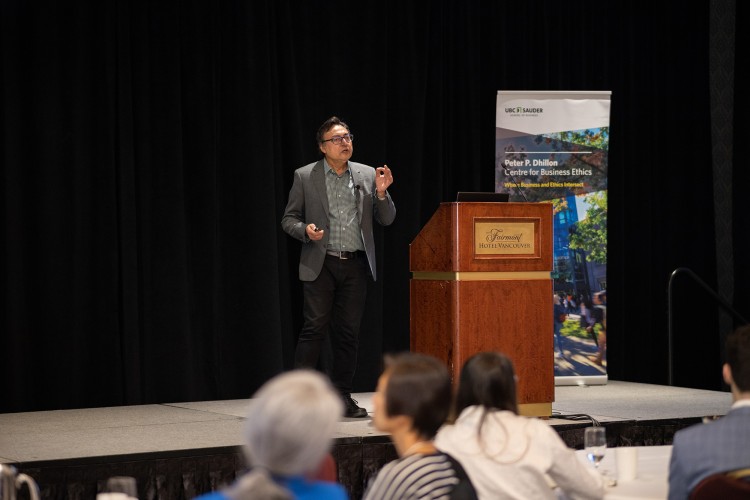
On June 24 and 25, 2022, the Peter P. Dhillon Centre for Business Ethics hosted the Behavioural Insights into Business for Social Good Conference. The event brought together members of academia and the business community to exchange ideas of how to foster business practices that contribute to the greater social good.
After two years of postponements due to COVID-19, the 2022 edition was hosted in-person at the Fairmont Hotel Vancouver, with approximately 250 people registered to attend. In partnership with Ostrom Climate Solutions, the event was carbon neutral.
The Friday morning session was focused on the work and insights of six speakers. Though it was a jam-packed schedule with a wide range of topics at the morning mainstage event, the presenters painted a cohesive and comprehensive picture of how companies can better protect people and the environment.
Those who took the stage included: Carol Anne Hilton, CEO of the Indigenomics Institute, Christine Bergeron, President and CEO of Vancity, Dr. CB Bhattacharya, H. J. Zoffer Chair in Sustainability and Ethics at the University of Pittsburgh, Dr. Toni Schmader, Professor of Psychology at UBC and Director of Engendering Success in STEM, Sheldon Fernandes, Manager at Brightspot Climate, and Dr. Vanessa Bohns, Associate Professor of Organizational Behavior at Cornell University.
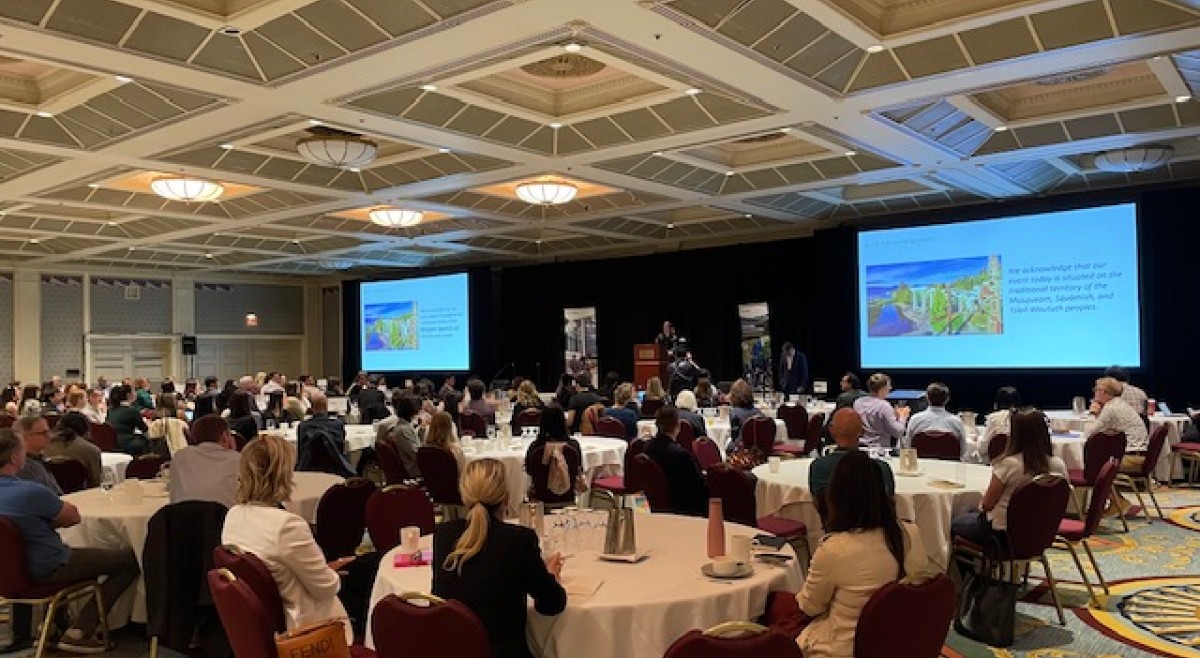
The audience was unique in that is was made up of members of the business community, UBC Sauder alumni, academic researchers, and graduate and undergraduate students. “One of the things that I really like about our morning session is that we have a very wide range of different perspectives – I think this helps people to see things in a new light and reframe the notion of business for social good in a way they haven’t previously thought about,” says Dr. Kate White, Academic Director of the Dhillon Centre and one of the event organizers.
Dr. Carol Liao, UBC Sauder Distinguished Scholar and another organizing member from the Dhillon Centre, emphasized the necessity of these conversations. “It is so important that we have these critical conversations on business for social good and sustainability because right now, we’re living in a climate emergency and sustainability crisis.”
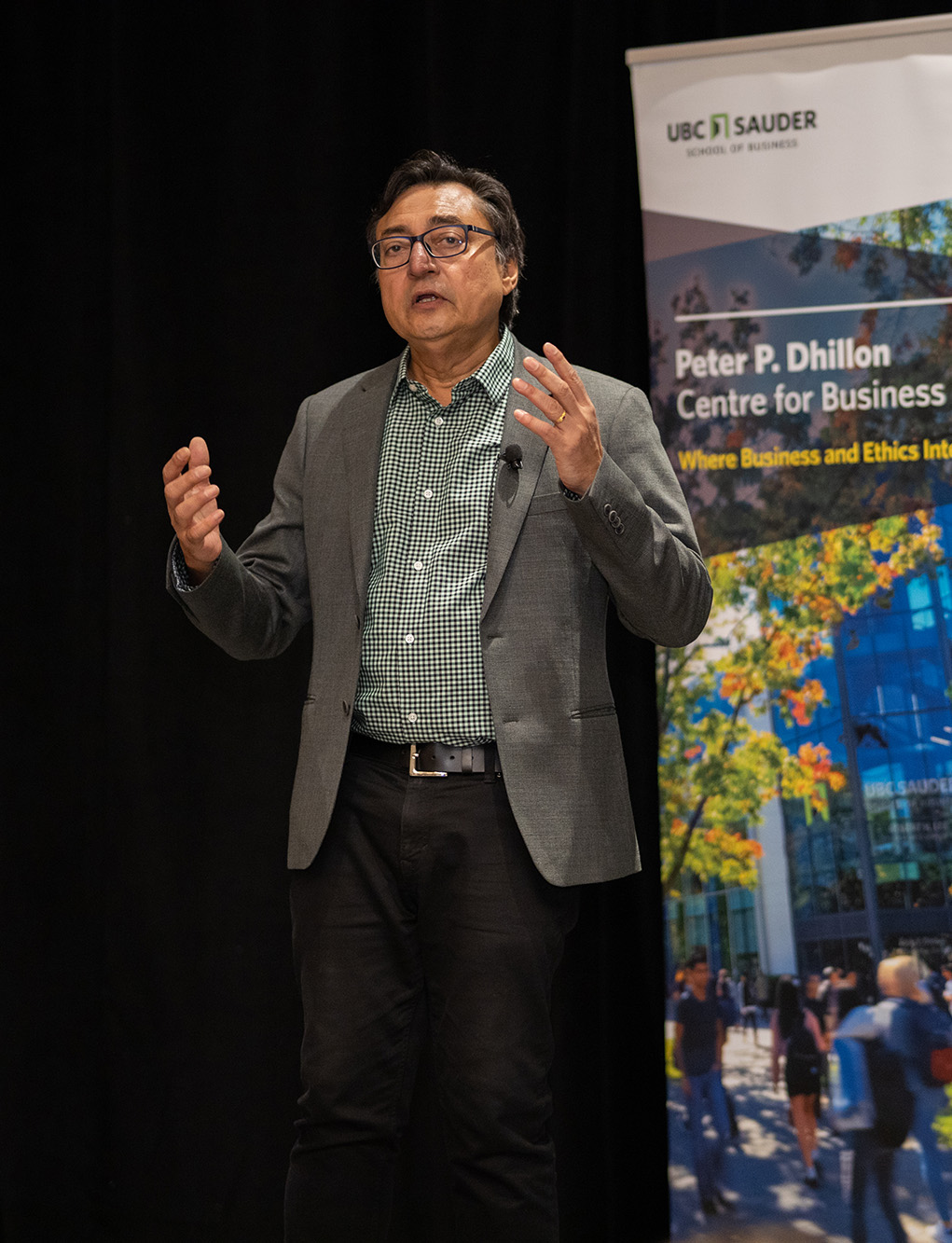
‘The future is sustainability’
Dr. CB Bhattacharya spoke on how “It Pays to Purpose,” where he presented his research on the profitability of companies pursuing sustainability.
“I think we have to, if not by choice than by the sheer demands of the planet and society, transform businesses to be more sustainable – otherwise we are facing extinction like dinosaurs did many years ago,” says Dr. Bhattacharya.
Dr. Bhattacharya says he believes that sustainability must be promoted at every level of the company.
“Very few companies consider sustainability at every level of management – it is seen as someone else’s problem,” he says.
Dr. Bhattacharya helped create the University of Pittsburgh’s Centre for Sustainable Business, which develops strategies based on current sustainability and social impact trends in business schools and higher educational settings, as well as helps companies transition to more sustainable business models.
‘Awareness is not enough’
UBC’s Dr. Toni Schmader’s talk focused on how businesses can protect people – specifically, women. Her topic highlighted the pitfalls in the way bias training is conducted and how it can be successfully executed.
As Director of the Engendering Success in STEM Consortium, a partnership between academics and profit and non-profit organizations, she works to bring these diverse parties together to translate anti-bias research into feasible business practices.
Dr. Schmader has been exploring the question of how women’s interactions with men in the workplace can lead to women feeling like they do not fit in. “The clearest experimental question would be, 'Can you actually intervene to essentially try and change behaviour?’” she says.
“Focus on educating people and raising awareness about these types of biases is not enough because people might not be motivated to have egalitarian motives, or it can lead to further unintentional bias if training does not come with strategies to work it out,” she adds.
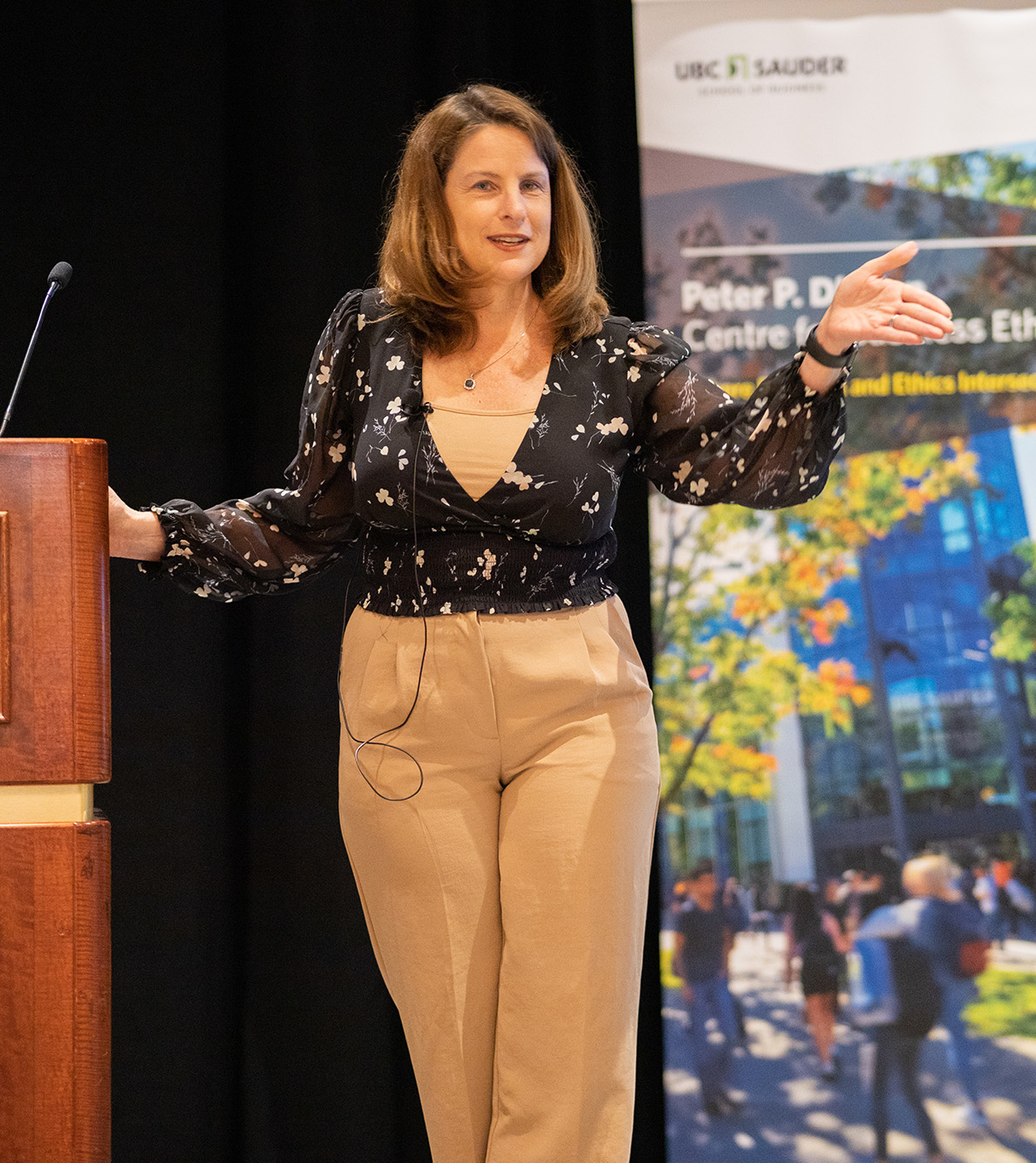
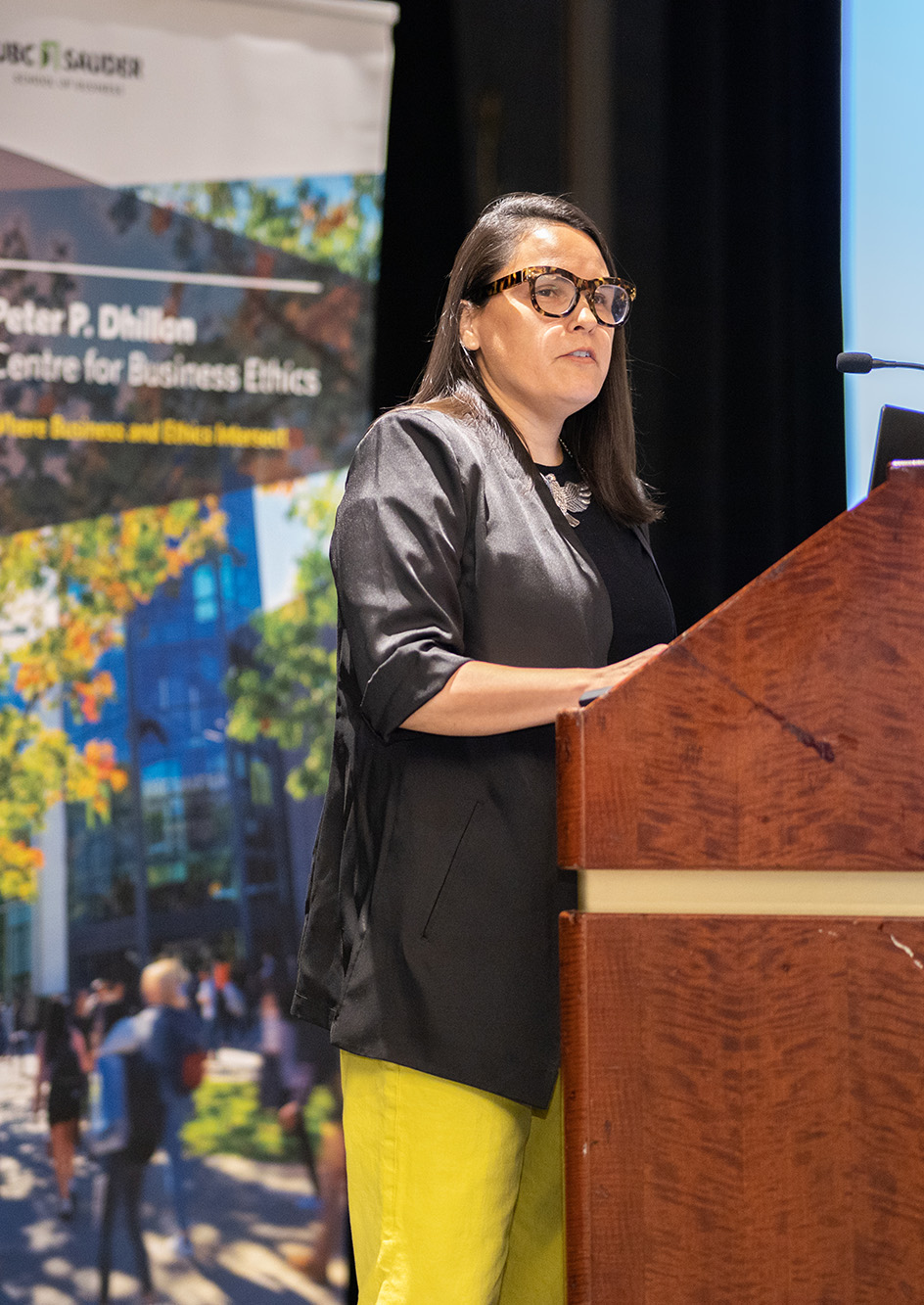
Ensuring an inclusive economy
Carol Anne Hilton spoke about the bias against Indigenous peoples in the form of their historical exclusion from the Canadian economy, and the practical steps businesses can take to ensure their future inclusion.
Hilton is the CEO and founder of the Indigenomics Institute, an Indigenous economic advisory for public governments, Indigenous communities and the private sector.
She established ‘Indigenomics’ as a line of thought, which she describes as, “A collective economic response to the lasting legacy of the systemic exclusion of Indigenous peoples in the development of this country.”
“Indigenous peoples are the only ones in the country who had to fight for the right to have an economy,” says Hilton. She highlighted the importance of Indigenous empowerment throughout her presentation.
Hilton’s work is focused on driving the narrative of the $100 billion Indigenous economic target using tools, leadership, resources, partnerships, institutions, and investments to build meaningful innovations in designing and growing Indigenous economies.
Following the Friday morning sessions, a conference for 70 scholars from Canada and beyond was held to share research on how to harness business to generate positive social impact. By bringing together influential thought leaders from a variety of fields, the event showcased how a coordinated and multi-perspective approach can be valuable in bringing about meaningful change.
“It is a point of pride that this event has become the go-to event on sustainable business and prosocial behaviour through the leadership of the Dhillon Centre, particularly Kate White, who holds the Professorship in Consumer Insights, Prosocial Consumption, and Sustainability, Dhillon Centre Executive Director Christie Stephenson, and Dhillon Centre Research Director Kirstin Appelt, along with the impressive number of preeminent business for social good scholars at UBC Sauder,” says Dr. Liao.